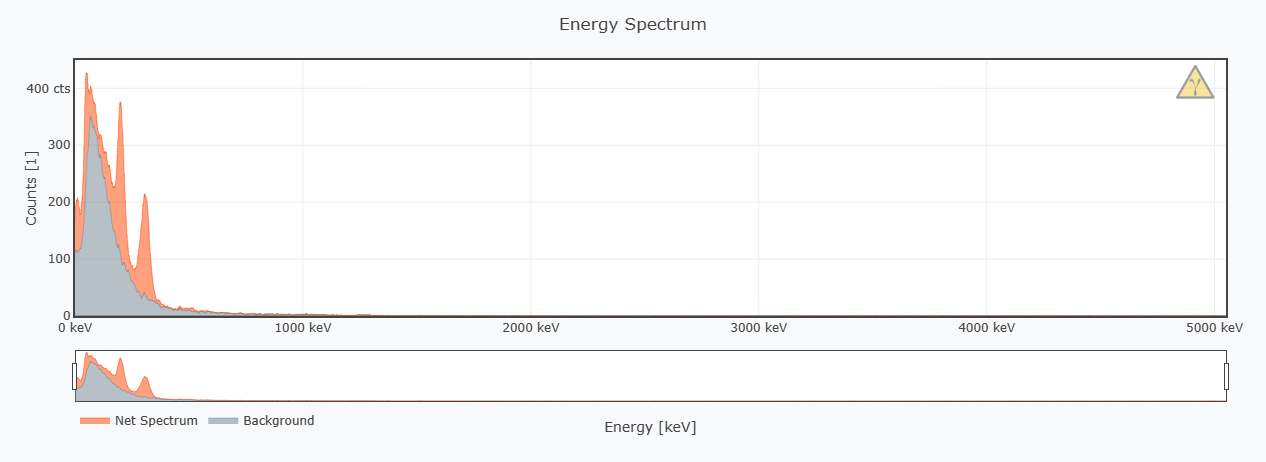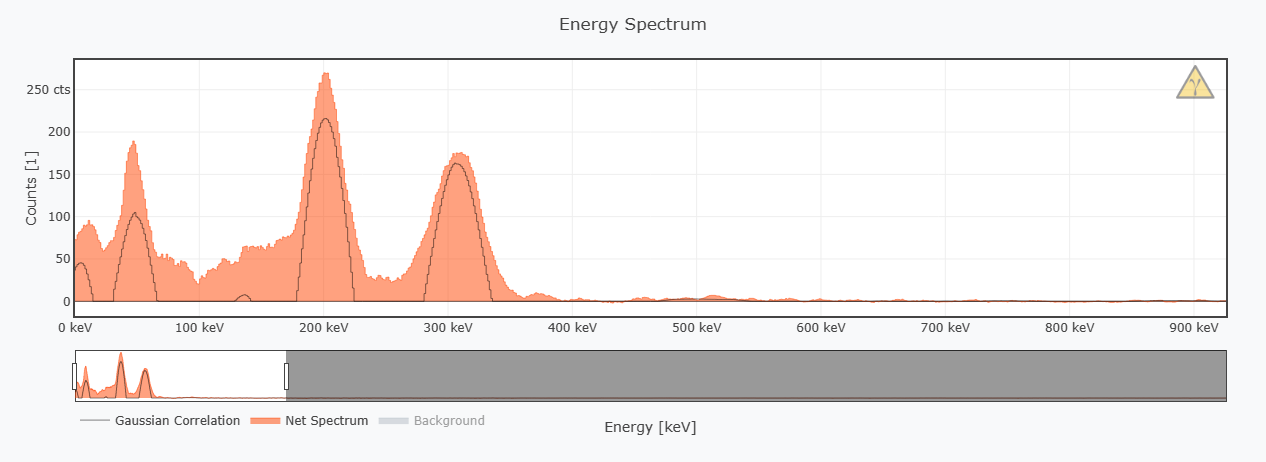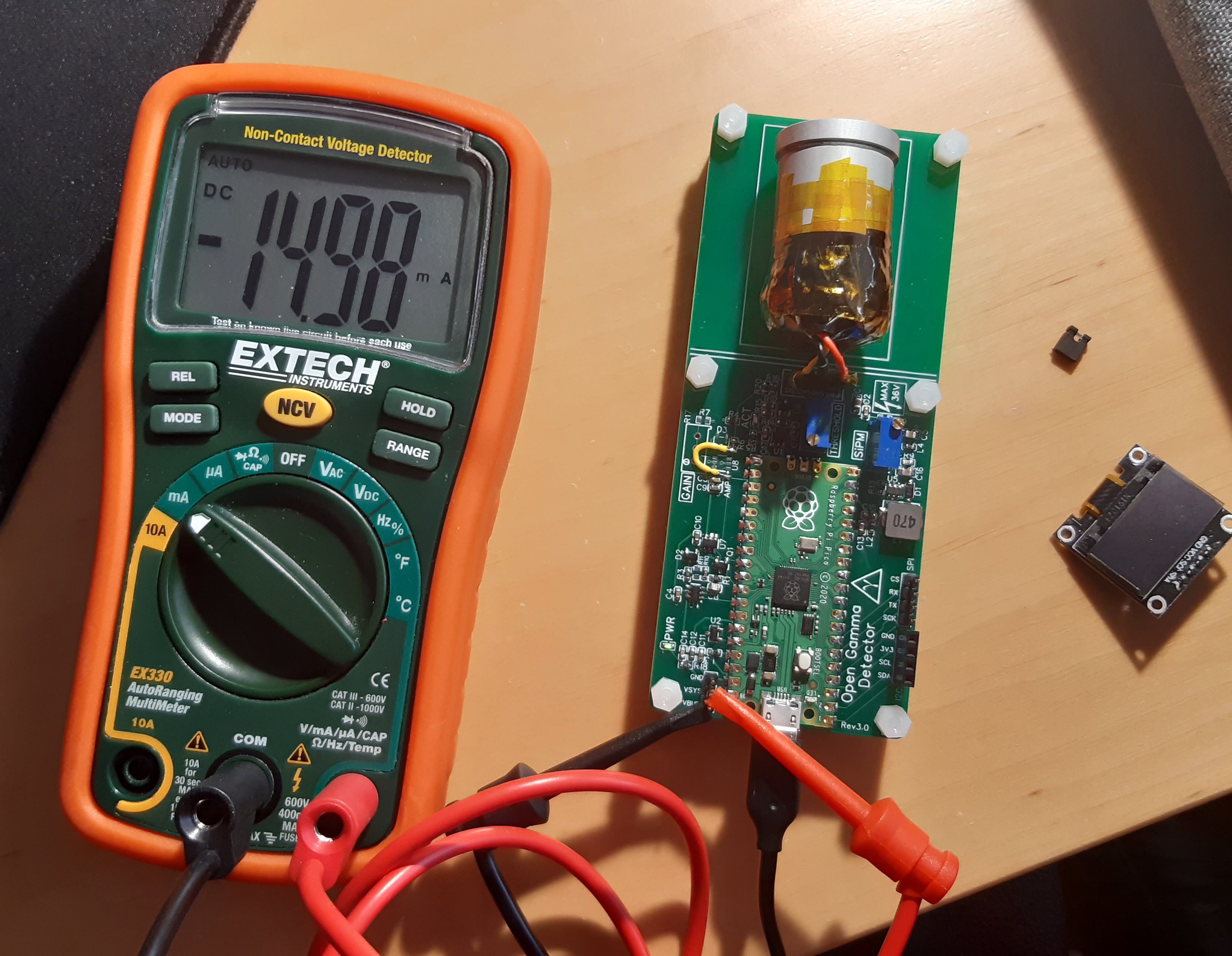Here's another little status update. This time in the middle of testing the newest boards and parts I just received.
After a few good hints and some tests, I simplified the amplifier circuit and lo and behold, the results are significantly better. I would say that's a win-win situation, yay!
More details about the circuit and hardware when I've finished everything, things can change until then. Here is a spectrum of my 2 small (4g) LYSO scintillators. Recorded over 30 minutes and lo and behold - energy resolution at 310 keV at about 14%. Have to test it again with a few higher energies, but that's way better than previously.


Power consumption is now around 15 mA without OLED (but that hardly needs anything extra), so the total power consumption is less than 100 mW now. Probably roughly half of it is still on the Pico, but I hardly optimized the software in this direction, so there is even more potential to save power. (Looking at you, low power challenge ;) )

Still needs to make some small changes to the circuitry and PCB, but this is going very much in the right direction.
Two small compromises I had to make for this:
- The pulses from the SiPM are no longer manually amplified. On the one
hand, this means that it is much easier to handle and use (Rev 2 wasn't that user-friendly after all). On the other hand, of course, this also means that the energy range that can be achieved and the resolution (limited by the ADC) depend more heavily on the scintillator used. But that shouldn't be a problem at all if the scintillator isn't too small. I use an older 18 x 30mm NaI. It's not really small, but it's not particularly big either. Even the $60, 1" x 1" scintillators from China are already larger in volume. - The SiPM pulses now have a duration of approx. 10 µs. This is about an order of magnitude slower than before, and accordingly more dead time. But in my opinion it is still more than justifiable, especially for the other improvements.
Stay tuned for more updates in the next weeks, I think it's gonna be great, especially if you already liked the previous revision! ;D
 NuclearPhoenix
NuclearPhoenix
Discussions
Become a Hackaday.io Member
Create an account to leave a comment. Already have an account? Log In.